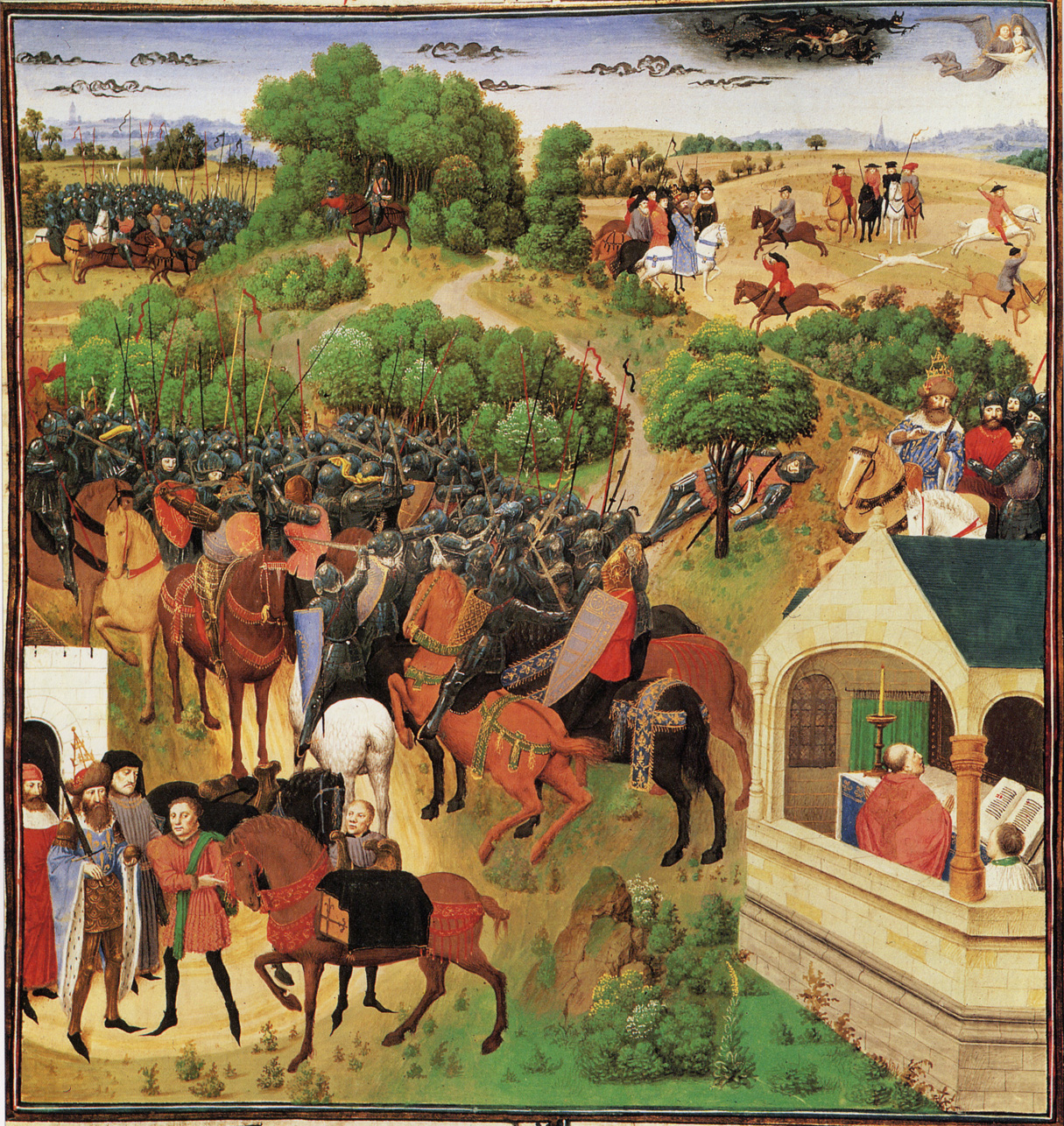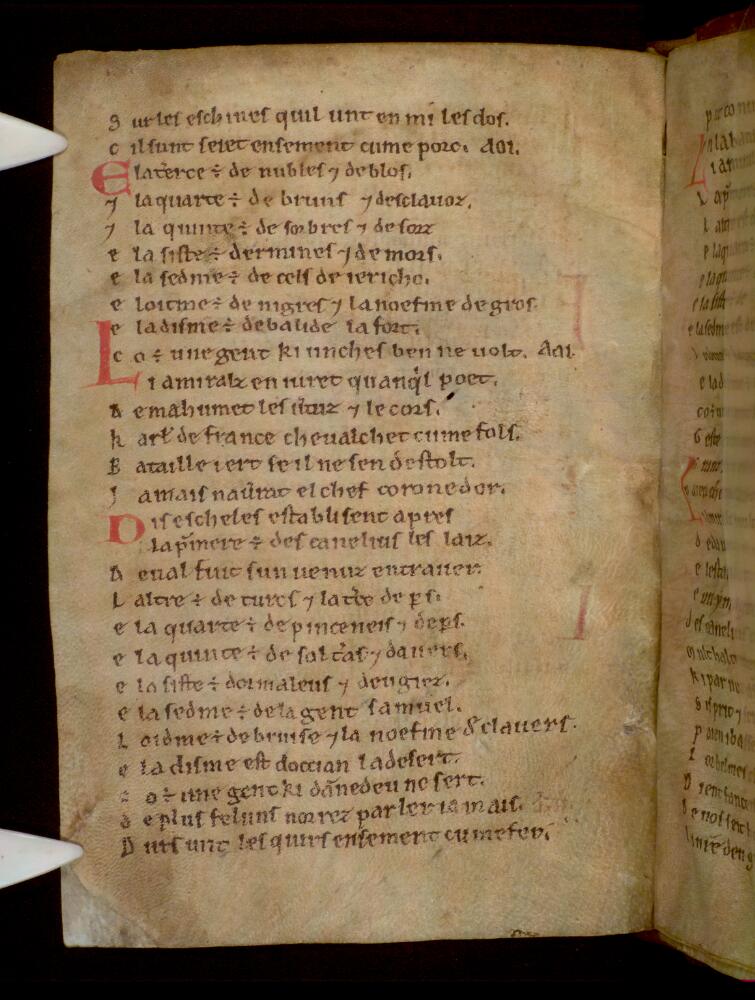|
Chanson De Jérusalem
''Chanson de Jérusalem'' (or ''Song of Jerusalem'') is a 12th century French epic poem celebrating the 1099 Siege of Jerusalem by Christian crusaders during the First Crusade. It was translated and incorporated into the prose Spanish ''Gran conquista de Ultramar The ''Gran conquista de Ultramar'' ('Great Conquest Beyond the Sea') is a late 13th-century Castilian chronicle of the Crusades for the period 1095–1271. It is a work of compilation, translation and prosification of Old French and Old Occitan ...''. References La conqueste de Jerusalem Medieval literature archive (in French). * Nigel R. Thorp, ed., ''The Old French Crusade Cycle, vol. 6: La chanson de Jérusalem''. University, Alabama: University of Alabama Press, 1992 * Susan B. Edgington, "Albert of Aachen and the Chansons de Geste" in John France, William G. Zajac, edd., ''The Crusades and their sources: essays presented to Bernard Hamilton'' (Aldershot: Ashgate, 1998) pp. 23–37. * Filippo Andrei. " ... [...More Info...] [...Related Items...] OR: [Wikipedia] [Google] [Baidu] |
Chanson De Geste
The ''chanson de geste'' (, from Latin 'deeds, actions accomplished') is a medieval narrative, a type of epic poem that appears at the dawn of French literature. The earliest known poems of this genre date from the late 11th and early 12th centuries, shortly before the emergence of the lyric poetry of the troubadours and trouvères, and the earliest verse romances. They reached their highest point of acceptance in the period 1150–1250.Hasenohr, 242. Composed in verse, these narrative poems of moderate length (averaging 4000 lines) were originally sung, or (later) recited, by minstrels or jongleurs. More than one hundred ''chansons de geste'' have survived in approximately three hundred manuscripts''La Chanson de Roland,'' 12. that date from the 12th to the 15th century. Origins Since the 19th century, much critical debate has centered on the origins of the ''chansons de geste'', and particularly on explaining the length of time between the composition of the ''chansons'' a ... [...More Info...] [...Related Items...] OR: [Wikipedia] [Google] [Baidu] |
Siege Of Jerusalem (1099)
The siege of Jerusalem (7 June – 15 July 1099) was waged by European forces of the First Crusade, resulting in the capture of the Holy City of Jerusalem from the Muslim Fatimid Caliphate, and laying the foundation for the Christian Kingdom of Jerusalem, which lasted almost two centuries. The capture of Jerusalem was the final major battle of the first of the Crusades to occupy the Holy Land begun in 1095. A number of eyewitness accounts of the siege were recorded, the most quoted being that from the anonymous '' Gesta Francorum''. Upon the declaration of the secular state, Godfrey of Bouillon, prominent among the leaders of the crusades, was elected ruler, eschewing the title "king." The siege led to the mass slaughter of thousands of Muslims and Jews and to the conversion of Muslim holy sites on the Temple Mount into Christian shrines. Background At the Council of Piacenza in 1095, Pope Urban II received envoys from Byzantine Emperor Alexios I asking Western Christians for a ... [...More Info...] [...Related Items...] OR: [Wikipedia] [Google] [Baidu] |
First Crusade
The First Crusade (1096–1099) was the first of a series of religious wars, or Crusades, initiated, supported and at times directed by the Latin Church in the medieval period. The objective was the recovery of the Holy Land from Islamic rule. While Jerusalem had been under Muslim rule for hundreds of years, by the 11th century the Seljuk takeover of the region threatened local Christian populations, pilgrimages from the West, and the Byzantine Empire itself. The earliest initiative for the First Crusade began in 1095 when Byzantine emperor Alexios I Komnenos requested military support from the Council of Piacenza in the empire's conflict with the Seljuk-led Turks. This was followed later in the year by the Council of Clermont, during which Pope Urban II supported the Byzantine request for military assistance and also urged faithful Christians to undertake an armed pilgrimage to Jerusalem. This call was met with an enthusiastic popular response across all social classes in ... [...More Info...] [...Related Items...] OR: [Wikipedia] [Google] [Baidu] |
Gran Conquista De Ultramar
The ''Gran conquista de Ultramar'' ('Great Conquest Beyond the Sea') is a late 13th-century Castilian chronicle of the Crusades for the period 1095–1271. It is a work of compilation, translation and prosification of Old French and Old Occitan sources, mixing historical material with legends drawn from the epic ''chansons de geste''. It was produced under royal patronage by Sancho IV and probably his father, Alfonso X. It was translated into Catalan and Galician-Portuguese. It survives in four manuscripts and received its ''editio princeps'' (first edition) in 1503. Manuscripts and editions Although the title ''Gran conquista de Ultramar'' ('Great Conquest of Outremer' or 'Great Conquest Beyond the Sea') is conventional, the work also appears in the manuscripts under the titles ''Grant estoria de Ultramar'' or ''Estoria mayor de Ultramar'' ('Great History of Outremer'). It survives partially in four manuscripts: *Madrid, BNE ms 1187 *Madrid, BNE ms 1920 *Madrid, BNE ms 2454 ... [...More Info...] [...Related Items...] OR: [Wikipedia] [Google] [Baidu] |
Chansons De Geste
The ''chanson de geste'' (, from Latin 'deeds, actions accomplished') is a medieval narrative, a type of epic poem that appears at the dawn of French literature. The earliest known poems of this genre date from the late 11th and early 12th centuries, shortly before the emergence of the lyric poetry of the troubadours and trouvères, and the earliest verse romances. They reached their highest point of acceptance in the period 1150–1250.Hasenohr, 242. Composed in verse, these narrative poems of moderate length (averaging 4000 lines) were originally sung, or (later) recited, by minstrels or jongleurs. More than one hundred ''chansons de geste'' have survived in approximately three hundred manuscripts''La Chanson de Roland,'' 12. that date from the 12th to the 15th century. Origins Since the 19th century, much critical debate has centered on the origins of the ''chansons de geste'', and particularly on explaining the length of time between the composition of the ''chansons'' a ... [...More Info...] [...Related Items...] OR: [Wikipedia] [Google] [Baidu] |
French Poems
French (french: français(e), link=no) may refer to: * Something of, from, or related to France ** French language, which originated in France, and its various dialects and accents ** French people, a nation and ethnic group identified with France ** French cuisine, cooking traditions and practices Fortnite French places Arts and media * The French (band), a British rock band * "French" (episode), a live-action episode of ''The Super Mario Bros. Super Show!'' * ''Française'' (film), 2008 * French Stewart (born 1964), American actor Other uses * French (surname), a surname (including a list of people with the name) * French (tunic), a particular type of military jacket or tunic used in the Russian Empire and Soviet Union * French's, an American brand of mustard condiment * French catheter scale, a unit of measurement of diameter * French Defence, a chess opening * French kiss, a type of kiss involving the tongue See also * France (other) * Franch, a surname * French ... [...More Info...] [...Related Items...] OR: [Wikipedia] [Google] [Baidu] |
Medieval French Literature
Medieval French literature is, for the purpose of this article, Medieval literature written in Oïl languages (particularly Old French and early Middle French) during the period from the eleventh century to the end of the fifteenth century. The material and cultural conditions in France and associated territories around the year 1100 unleashed what the scholar Charles Homer Haskins termed the " Renaissance of the 12th century" and, for over the next hundred years, writers, " jongleurs", "clercs" and poets produced a profusion of remarkable creative works in all genres. Although the dynastic struggles of the Hundred Years' War and the Black Death pandemic of the fourteenth century in many ways curtailed this creative production, the fifteenth century laid the groundwork for the French Renaissance. Language Up to roughly 1340, the Romance languages spoken in the Middle Ages in the northern half of what is today France are collectively known as "ancien français" ("Old French") ... [...More Info...] [...Related Items...] OR: [Wikipedia] [Google] [Baidu] |



